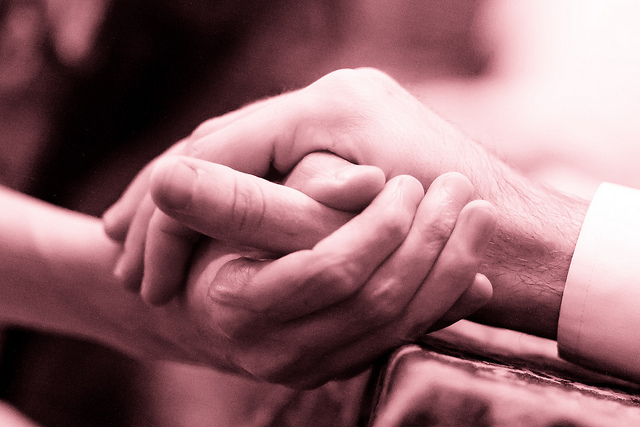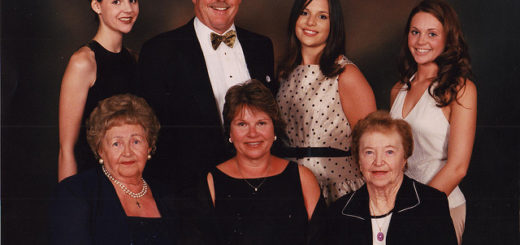What Is Non-Violent Communication?
I asked my Aikido teacher what he thinks life is all about. Is there a purpose to it? He answered me, weeks later that it is about enlightenment. From birth to death we experience tension at the physical, psychological and spiritual levels. I believe enlightenment is the process with which we grow as a result of dealing with, seeming, inner and external tensions. The same process is true for social growth. Non-violent communication teaches us a language with which to think and unify such tensions, enabling us to recognise our totality.

Simple yet powerfully transformative Non-Violent Communication teaches us a language with which to think and work through tensions within and without.
Non-Violent Communication As An Alternative To Cycle Of Violence
People who realise their totality lead a meaningful lives led by following their passions. A psychologist who grew up in a rough district in America, Marshall Rosenberg aimed to develop a new form of communication that would provide peaceful alternative to the violence he recently encountered.He observed that when we think we are are judged or criticised we tend to feel offended. In order to save face the ego either defends, attacks or withdraws which in turn leads to more resistance and defensiveness. This is how the cycle of violence escalates.
But the ego is an illusion, because it is simply energy responding to different social contexts.
As a result of wanting to expand our response range, Rosenberg developed a communication process during the 1960s. This aims to give people more power. He later founded a non-profit organisation to teach these skills and awareness for inner and outer harmony. As a dedicated teacher, peacemaker and visionary leader he worked with individuals, families and communities at war. He describes the results of this simple yet hugely transformative work in this way:
‘Such incredible things happen when I leave groups, so that when I go back, I can hardly believe what they’ve accomplished in the time since I was last there. I see this everywhere I go. The people I work with want to radiate this process and transform things. They want everyone to have access to these principles, and they have enormous energy for spreading this kind of work.’
Non-violent Communication Focuses on Identifying Needs and Clear Expression of Requests
Rosenberg’s method is referred as Nonviolent Communicationsince it isoften used as a conflict resolution process.Compassionate or Collaborative Communication are other names for this approach due to its focus on connecting at the level of human needs to understand the world and relate to ourselves and to one another.
All human activity is based on fulfilling a, perceived, need. However we learn from a young age to judge and label our and others’ needs and get cut off from acting naturally in order to attempt to meet these. Moreover, we learn to feel guilty when we think and talk about our needs. When we are frustrated we may feel victimised which we turn into anger. Here are Rosenberg’s tools to change your relationship to yourself and your, apparent, relationship to others by focusing on listening with an open heart to your and the other’s needs:
- Develop self empathy. You approach your own, deep inner experience with total compassion and acceptance. In order to understand your overeating, your anger, your procrastination ask which of your needs you are attempting to fulfil, or which unmet need you are reacting to. Have you identified your personal need? What is your intention?
- Nurture empathy for others. This involves seeing the humanness of the other person beyond the intellectual analysis of who is right who is wrong. When you listen to the other person with compassion, with the intention to understand their deep unmet needs behind their words and actions you can really hear what they are unable to say; their fear, their lack of safety, their need to be accepted and loved for who they are. This way you can bring out your common humanness and prepare the ground for collaboration. Have you heard the need of the other person?
- Adopthonest self-expression. Expressing oneself authentically inspires compassion in others and lead to collaboration. Have you articulated your wish clearly?
When needs and wants are spoken and heard with the heart, collaborative and creative strategies become a possibilities.
Non-violent Communication Empowers All Involved
We all want to be happy. We all feel happy when we make others happy. We simply don’t know how to do this. These tools, not only can transform your life but the life of your family, your friends and your community. Wisdom tells us we are not powerless in the face of misfortune and violence. Even if the response you receive from someone easily offended, violent or aggressive may be painful, there is a possibility of mutual recognition and respect. When we aim to become the change we want to see in the world, the resources and opportunities to make meaningful contributions present themselves.
If social tension can lead to social harmony then we need firstly to achieve self-harmony.
Are you ready to become the change you want to see in your world? Start with compassion for yourself and your basic human needs. Listen deeply to your friends, parents, partner, children, siblings, neighbours, coworkers, your child’s teachers. Really listen both to their words and the emotions behind them. You will come to understand the unmet needs that are creating any conflict between you. Then express your deepest needs and wishes honestly. This may involve you talking from within your protective shell. But even so you will be on your way to find creative and harmonious solutions to difficulties in collaboration with others.
In this way you will contribute to making a more harmonious life for yourself.
Congratulations!
Attribution 2.0 Generic (CC BY 2.0)image:Kenneth Lu




